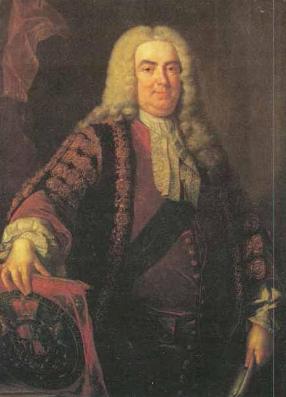POJ 3126 Prime Path
来源:互联网 发布:互联网平台运营知乎 编辑:程序博客网 时间:2024/05/29 17:53
#include<iostream>#include<cstdio>#include<cmath>#include<algorithm>#include<queue>using namespace std;#define N 20000int vis[N],prime[N];void prime_table(){int m=(int)sqrt(N+0.5);memset(prime,0,sizeof(prime));for(int i=2;i<=m;i++)if(!prime[i])for(int j=i*i;j<=N;j+=i)prime[j]=1;for(int i=2;i<=N;i++)if(!prime[i])prime[i]=1;else prime[i]=0;}struct point{int x,step;point(int _x,int _s):x(_x),step(_s){}point(){}};int bfs(int m,int n){memset(vis,0,sizeof(vis));queue<point>q;vis[m]=1;q.push(point(m,0));while(!q.empty()){point top=q.front();q.pop();if(top.x==n){return top.step;}int x1=top.x/1000;int x2=(top.x/100)%10;int x3=(top.x/10)%10;int x4=top.x%10;for(int k=0;k<4;k++){point temp=top;if(k==0){for(int i=1;i<10;i++){int tt=i*1000+x2*100+x3*10+x4;if(prime[tt]&&!vis[tt]){q.push(point(tt,temp.step+1));vis[tt]=1;}}}else if(k==1){for(int i=0;i<10;i++){int tt=x1*1000+i*100+x3*10+x4;if(prime[tt]&&!vis[tt]){q.push(point(tt,temp.step+1));vis[tt]=1;}}}else if(k==2){for(int i=0;i<10;i++){int tt=x1*1000+x2*100+i*10+x4;if(prime[tt]&&!vis[tt]){q.push(point(tt,temp.step+1));vis[tt]=1;}}}else if(k==3){for(int i=1;i<10;i+=2){int tt=x1*1000+x2*100+x3*10+i;if(prime[tt]&&!vis[tt]){q.push(point(tt,temp.step+1));vis[tt]=1;}}}}}return -1;}int main(){#ifdef CDZSCfreopen("i.txt","r",stdin);#endifprime_table();int m,n,t;scanf("%d",&t);while(t--){scanf("%d%d",&n,&m);if(n==m){puts("0");}else{printf("%d\n",bfs(m,n));}}return 0;}这一题纠结的挺久的,然后花了半个小时敲了一下就过了,过了。。。。。说一下题意吧,一个素数a每一次可以改变一位数字,而改变后的这个数必须是也是素数,求从A到B
最少要经过几步 可以到达。先用打出素数表加快判断速度,然后枚举各个位数的可能性,这里值得注意的是首位不能是0,从1开始枚举到9,末尾如果是偶数必定不是素数,所以可以有一个小小的优化,
for(int i=1;i<10;i+=2)
Prime Path
Time Limit: 1000MS Memory Limit: 65536KTotal Submissions: 14659 Accepted: 8267
Description
 The ministers of the cabinet were quite upset by the message from the Chief of Security stating that they would all have to change the four-digit room numbers on their offices.
The ministers of the cabinet were quite upset by the message from the Chief of Security stating that they would all have to change the four-digit room numbers on their offices. — It is a matter of security to change such things every now and then, to keep the enemy in the dark.
— But look, I have chosen my number 1033 for good reasons. I am the Prime minister, you know!
— I know, so therefore your new number 8179 is also a prime. You will just have to paste four new digits over the four old ones on your office door.
— No, it’s not that simple. Suppose that I change the first digit to an 8, then the number will read 8033 which is not a prime!
— I see, being the prime minister you cannot stand having a non-prime number on your door even for a few seconds.
— Correct! So I must invent a scheme for going from 1033 to 8179 by a path of prime numbers where only one digit is changed from one prime to the next prime.
Now, the minister of finance, who had been eavesdropping, intervened.
— No unnecessary expenditure, please! I happen to know that the price of a digit is one pound.
— Hmm, in that case I need a computer program to minimize the cost. You don't know some very cheap software gurus, do you?
— In fact, I do. You see, there is this programming contest going on... Help the prime minister to find the cheapest prime path between any two given four-digit primes! The first digit must be nonzero, of course. Here is a solution in the case above.
1033The cost of this solution is 6 pounds. Note that the digit 1 which got pasted over in step 2 can not be reused in the last step – a new 1 must be purchased.
1733
3733
3739
3779
8779
8179
Input
One line with a positive number: the number of test cases (at most 100). Then for each test case, one line with two numbers separated by a blank. Both numbers are four-digit primes (without leading zeros).
Output
One line for each case, either with a number stating the minimal cost or containing the word Impossible.
Sample Input
31033 81791373 80171033 1033
Sample Output
670
Source
Northwestern Europe 2006
0 0
- POJ 3126 Prime Path
- POJ 3126 Prime Path
- poj 3126Prime Path
- POJ -3126-Prime Path
- POJ 3126 Prime Path
- poj 3126 Prime Path
- POJ 3126 - Prime Path
- POJ 3126 Prime Path
- poj 3126 prime path
- POJ 3126 Prime Path
- Prime Path poj 3126
- POJ 3126 Prime Path
- poj 3126 Prime Path
- POJ 3126 Prime Path
- poj 3126 Prime path
- poj - 3126 - Prime Path
- POJ 3126 Prime Path
- POJ 3126 Prime Path
- 用栈来实现表达式的计算
- jquery关于select框的取值和赋值
- hdu 4631 Sad Love Story(暴力)
- 如何在C++中实现求两个整数的最大公约数和最小公倍数
- 在O(1)时间复杂度删除链表节点(LintCode)
- POJ 3126 Prime Path
- vlsm的划分
- 正试图在 os 加载程序锁内执行托管代码。不要尝试在 DllMain 或映像初始化函数内运行托管代码,这样做会导致应用程序挂起。问题的解决方法!
- 二十三种设计模式之行为型模式之模板方法
- lintcode:3 Sum
- 转义字符
- StringBuffer清空操作效率分析
- HttpWatch工具简介
- 痛迅企鹅修改版私密分享_版本不新但异常给力


